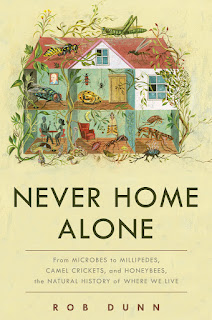”Power” may be the most aggressive and dangerous concept in world history. Certainly, the pursuit of power has led us to countless devastating events, including the one we are witnessing today in Ukraine. Is such behavior, if only carried to the extreme periodically, inevitable? Is peace the exception?
The biological sciences can shed much light on human behavior. It is necessary to understand that Homo sapiens is an animal species, subject to the genetic code that has “advanced” us to the pinnacle of social organization, and supremacy over other species. What began as mating success through physical superiority to other males evolved to success through demonstration of better skills at provisioning food and other resources. Today, we no longer compete merely in a tribe or village, but on a global stage. Accumulation of excessive material wealth is now one standard. Use of military force is another means of demonstrating an "alpha" persona.
Our cultural revolutions, from the Agricultural Revolution to the Industrial and Digital, are mere extensions of our biological evolution. They have all been driven by personal aspiration to power in the sense of reflecting our biological imperative to advance our personal genetic code through future generations. The collective success of our species is probably largely a by-product of personal pursuits, choices, and invention.
We have always coveted resources held by other humans, and viewed “others” as competition, or impediments to our selfish pursuit of a monopoly on genetic advancement, though we would never come right out and say this. We have become so conditioned to ignore the role of our biological instincts that we create all manner of arguments to distract us from it. We are loathe to accept ourselves as biological beings subject to the “laws” of nature, yet it is at the heart of everything we do.
The most terrible situation of all is when an individual succeeds in convincing others it is in their best interest to advance his personal agenda, when it does not benefit those who endorse it. Tragically, we see this scenario time and again, so we are apparently not learning anything from it. In fact, when the scam is revealed, it often serves to solidify allegiance to the scammer. We abhor being duped more than we are committed to truth, justice, and equity. People who are easily fooled do not perpetuate their genes as successfully.
Time out. None of us want to admit we are that basic, that everything is driven purely by biology. Fine, but that is the foundation of our success to this point, and there is no shame in that. What is shameful is how we have chosen to evolve socially. Social evolution is largely a feedback loop that begins again with genetic code that is then modified through experience and experimentation. Social evolution is nature and nurture, the latter being more than maternal, paternal and familial, but including the global village. What works is perpetuated, what fails is not. Well, ideally, anyway.
The fact that we see rampant opposition to warfare, colonization, poverty, racism, and other manifestations of oppression and exclusion, speaks to at more than marginal success in advancing a genetic and social code based on peace, justice, and inclusion. This is highly encouraging.
Here in the U.S., efforts to gerrymander congressional districts and restrict voting rights are actually signs of success. The more desperate the measures to protect concentrated power, the more we should accelerate the opposite agenda, because we are at the brink of breaking the power cycle forever.
That is the ultimate characteristic of individual power: it is fleeting, impermanent. Even relatively benign examples like the British monarchy, are likely to expire in my lifetime, or at least be rendered irrelevant. Powerful individuals and families tend to stop evolving once they have achieved their personal version of success, while the rest of society continues to evolve, eventually overwhelming them, replacing them with more effective institutions.
We are living an accelerated social evolution right now, where, at its best, social media is creating widespread empathy for those not in positions of power, empowering those who previously believed themselves to be powerless, and organizing movements at lightning speeds. Despite a global pandemic we are refusing to allow ourselves to be isolated. We still take to the streets locally (hopefully vaccinated and still masked to protect the immunocompromised), and broadcast globally. There are fewer and fewer strangers every day.
We are getting there. Refuse to acknowledge anyone who tells you otherwise. We will prevail in normalizing the pursuit of equal power for all, and aspiring not to material wealth but to generosity and critical thinking.
